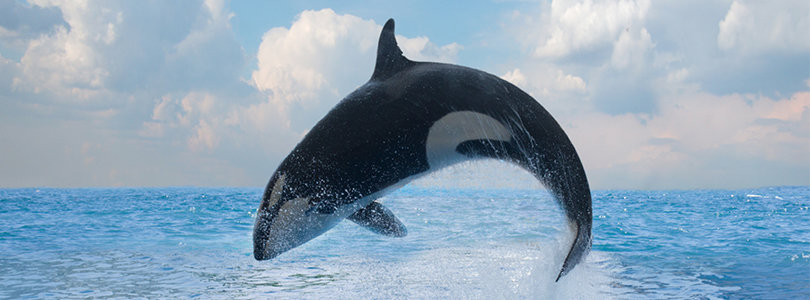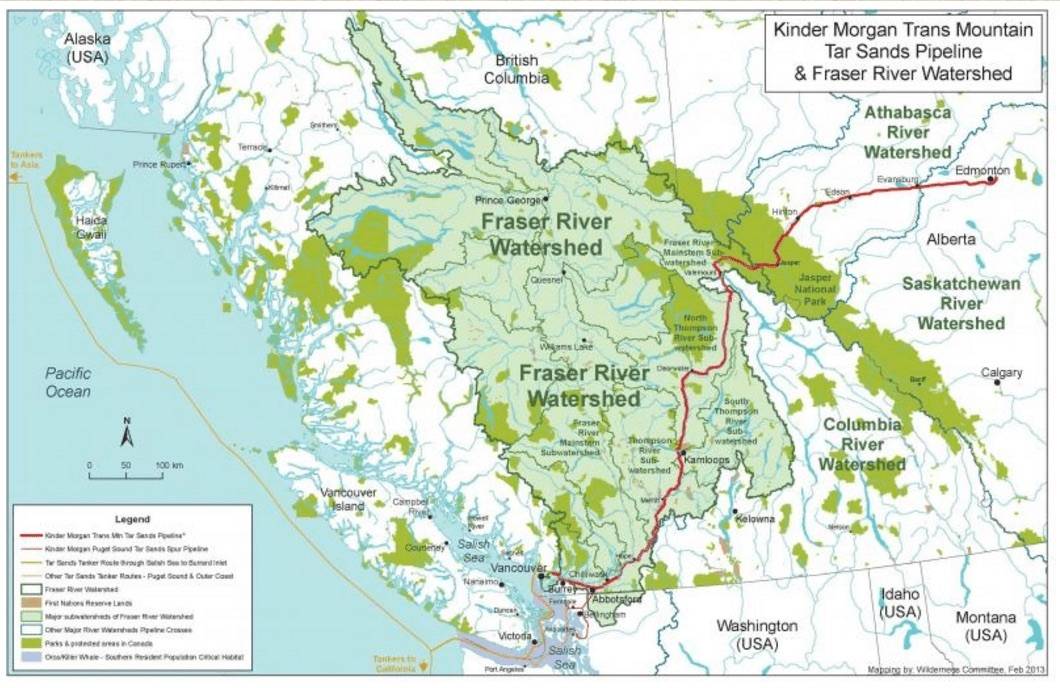Choose Orcas – Not the Trans Mountain Pipeline
Trans Mountain

We Have the Chance to Defend Orcas by Stopping the Proposed Trans Mountain Pipeline.
Trans Mountain wants to bring over 400 tankers a year to the BC coast – more than a sevenfold increase! Orcas rely on salmon for food, which are also at risk from an oil spill, but the noise pollution alone is enough to make the song of the southern resident killer whales go silent by wiping out this endangered species.
Trans Mountain 101
Houston-based Kinder Morgan (formerly Enron Liquid Pipelines) is one of the largest fossil fuel companies in the world.
The company intends to build a new 1,100 km export pipeline for a dangerous kind of oil called diluted bitumen. The route would be carved out from Northern Alberta to Vancouver’s Burrard Inlet. It culminates at the ocean where massive tankers will transport the oil across the world.

Source: Wilderness Committee
The proposed pipeline would increase the amount of hazardous crude oil traveling through British Columbia’s water more than seven times: from approximately 60 tankers a year to over 400.
Right now we have an opportunity to learn from the mistakes we have made in the past. Did you know that after the Exxon Valdez disaster a unique pod of whales on the North Coast was lost forever?
Orcas from the pod surfaced through the suffocating layer of toxic sludge, trying to breathe inches above the deadly slick. They had no experience detecting or avoiding the silent blanket of death flowing from the ruptured boat and soon nine of the 22 members of the pod were dead. Most of those that survived have now vanished. The pod never produced another living baby and was doomed to extinction by this oil spill.
“It’s a separate population. Their genetics, their acoustics, are different from any other killer whales that we see in the North Pacific,” said Craig Matkin, director of the North Gulf Oceanic Society, who has studied the region’s whales for three decades. Each pod is unique and once gone is lost forever.
“’Each resident pod has a separate dialect,” said Matkin. “AT1 doesn’t have a different dialect, but a whole different call structure.’ One could even think of their songs as an entirely different language” (WIRED, 2009).
What do Orcas have to do with Trans Mountain?
Burrard Inlet is the home of close to 80 southern resident Orcas that also live on the knife’s edge of extinction. Were this pipeline to be built, the spike in tanker traffic would be disastrous for them. They, like their now extinct northern neighbours, are a genetically unique population that is already classified as endangered in both Canada and the US.
“The approval of the project is also the approval of the extinction of the population,” says Ross Dixon of the Raincoast Conservation Foundation. “No one is disputing it. Nobody is saying that’s not accurate. It’s been accepted. If this population goes extinct, it’s gone for good. They’re part of our identity, they’re part of the place in which we live. If we lose them, we lose a part of ourselves.”
What Can I Do to Help?
Spread the Word
When people see other people they know, or can relate to, expressing their views, it can make a big difference.
Sign up to Become a Friend of the Sacred Trust
Become a Friend of the Sacred Trust
Stay informed about the Trans Mountain pipeline proposal and don’t miss important updates from the Sacred Trust team.




